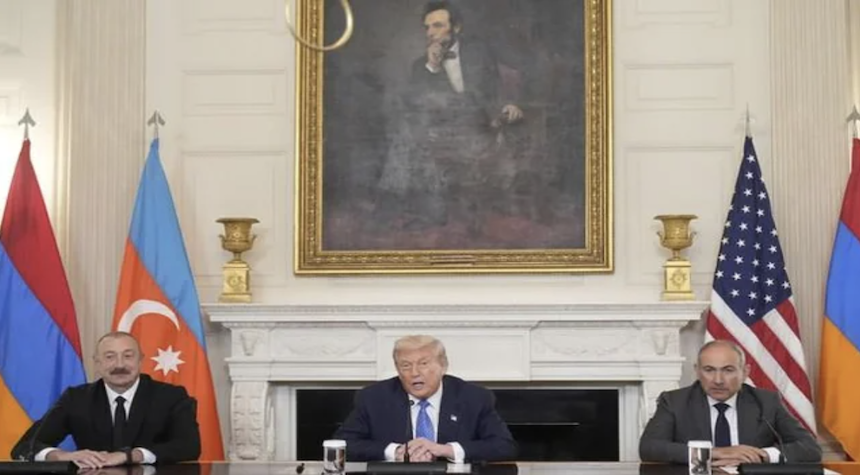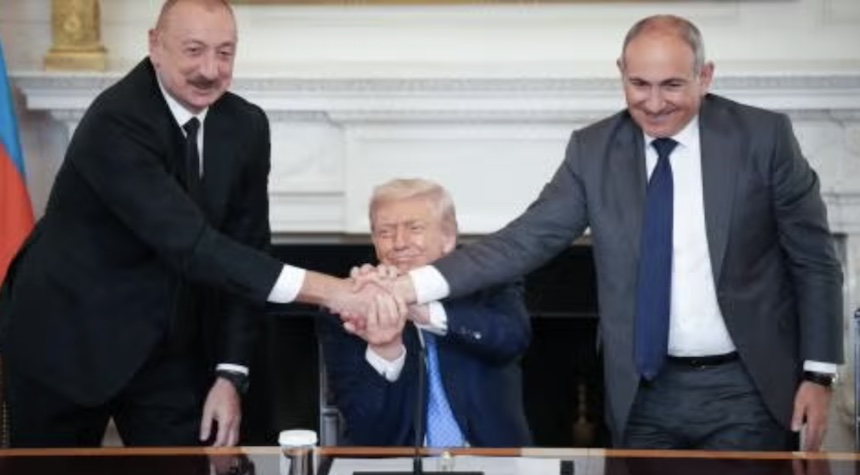President Trump’s diplomatic strides in the South Caucasus are far from an isolated act of peacemaking. They constitute a multifaceted strategy against a broader and more potent adversary: China.
Last week, the Trump administration brokered a peace accord between Azerbaijan and Armenia, ending the Nagorno-Karabakh conflict that’s been festering for over three decades. This is significant, not just for the Caucasus region, but also for the international dynamics in play. Trump’s Route for International Peace and Prosperity (TRIPP) is poised to connect Azerbaijan to its autonomous Nakhchivan exclave. The TRIPP corridor’s strategic placement near the Iranian border places the U.S. at the crossroads between the East and the West.
Trump also signed bilateral agreements with both countries, fostering cooperation in trade, transit, infrastructure, AI, and counter-terrorism and security. This is just factually accurate: Trump’s diplomatic enterprise was an assertive move to curb China’s growing influence in the region.

China has been attempting to position itself as a global peacemaker, despite its flagrant international transgressions. The Trump administration astutely recognized the Nagorno-Karabakh conflict as a potential avenue for the Chinese Communist Party (CCP) to expand its influence. Consequently, this peace deal effectively shuts the door on Chinese influence in the reconciliation process between Azerbaijan and Armenia.
China is Azerbaijan’s fourth-largest trading partner, and Baku plays a key role in China’s Belt and Road Initiative (BRI) projects linking China to Europe. Azerbaijan is also a dialogue partner in the China-led Shanghai Cooperation Organization (SCO). On the other hand, China’s influence in Armenia is more modest, with no significant BRI infrastructure projects in the country.
TRIPP and other bilateral agreements act as a counterweight to China’s influence in the region. This comes at a critical time when Azerbaijan and Armenia have begun shoring up their relations with Beijing. The Trump administration has cleverly inserted a wedge between these Caucasian countries and China, amplifying the U.S.’s footprint in the region.
The fundamental problem is China’s expansionist objectives. The China that Washington finds itself at odds with today is radically different from the China of decades ago. It’s a country with an international footprint, aiming to supplant American influence wherever possible. To confront this reality, the Trump administration is extending America’s presence into strategic regions where it has historically had little or no influence.
The Trump administration is actively working to isolate China internationally. We can walk and chew gum at the same time. We need to. The stakes are too high to dilly dally.

